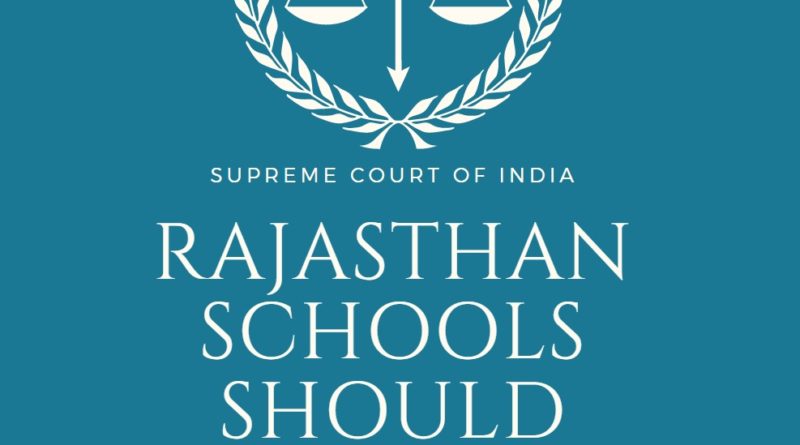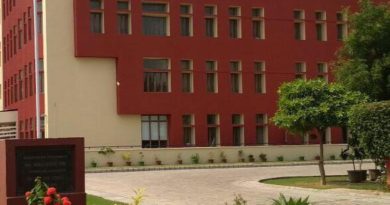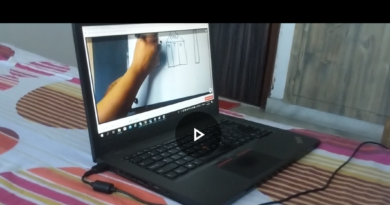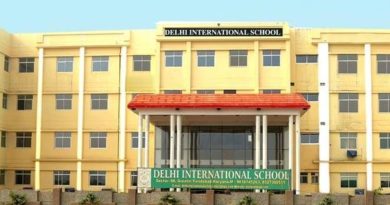Supreme court directs regulatory authorities to reduce fees for online classes conducted by schools
The pandemic is not ending and so is the online classes format of schooling. Schools have been conducting online classes for more than a year now to ensure continuation of student – teacher interaction. While the parents are clearly missing out on the benefits of school infrastructure and face to face interaction, they are also taxed with additional responsibility of supporting their child through the online process. Many are not even able to take classes properly due to relatively poor internet networks. At the same time, schools are also suffering as a proportion of parents are unable to or not paying fees on time. They are hence unable to pay their staff timely in some cases. Supporting parents in this tricky situation, Rajasthan government had passed a direction to schools to reduce fees by 30%. Objecting to this reduction of fees, private unaided schools of Rajasthan plead in front of Supreme court to take back the Rajasthan Government’s order. However, Supreme court chose the middle path and Supreme court directed regulatory authorities to reduce fees for online classes (for non offline classes).
The State of Rajasthan who were responding party to the appeal stated that the parents believe the schools are saving a significant amount of money on infrastructural cost and other expenses involved in maintaining facilities. The court had a look at both sides of the story and thought it would be wise to have a reasonable yet not mathematically proven number (as it may vary from school to school) which shall be offered as discount over school fees.
While Rajasthan Government had asked schools to reduce fees by 30%, Supreme court suggested to reduce fees by 15%. The court also asked schools not to debar students on non payment of fees if there is a legitimate reason for delay in fee payment. This judgment was passed as part of Diary no. 6803 of 2020 in Supreme court records.
The implication of this order, while currently limited to Rajasthan schools, would eventually be a reference point for other schools as well. By reducing the fees by 15%, the schools would not only comply with the judgment, but would also be in a position of strength where parents are bound to pay fees on time.
Following are key points from the judgment:
(i) The appellants (school Management of the concerned private unaided school) shall collect annual
school fees from their students as fixed under the Act of 2016 for the academic year 2019 20, but by
providing deduction of 15 per cent on that amount in lieu of unutilised facilities by the students during the
relevant period of academic year 2020 21.
(ii) The amount so payable by the concerned students be paid in six equal monthly instalments
before 05.08.2021 as noted in our order dated 08.02.2021.
(iii) Regardless of the above, it will be open to the appellants (concerned schools) to give further
concession to their students or to evolve a different pattern for giving concession over and above those
noted in clauses (i) and (ii) above.
(iv) The school Management shall not debar any student from attending either online classes or
physical classes on account of nonpayment of fees, arrears/outstanding fees including the installments,
referred to above, and shall not withhold the results of the examinations of any student on that account.
(v) If any individual request is made by the parent/ward finding it difficult to remit annual fees for
the academic year 202021 in the above terms, the school Management to consider such representation
on case to case basis sympathetically.
(vi) The above arrangement will not affect collection of fees for the academic year 202122, as is payable by
the students of the concerned school as and when it becomes due and payable.
(vii) The school Management shall not withhold the name of any student/candidate for the ensuing Board
examinations for Classes X and XII on the ground of nonpayment of fee/arrears for the academic year
202021, if any, on obtaining undertaking of the concerned parents/students.
“We are conscious of the fact that we are issuing general uniform direction of deduction of 15 per cent of the annual school
fees in lieu of unutilised facilities/activities and not on the basis of actual data schoolwise. As aforesaid, we have chosen to do so with
a view to obviate avoidable litigation and to give finality to the issue of determination and collection of school fees for the academic year
202021, as a onetime measure which is the subject matter of these appeals. We have consciously limited the quantum of
deduction from annual school fees to 15 per cent although the school Management had mentioned about its willingness to provide
25 per cent scholarship to deserving students, as we have compelled the school Management to collect annual school fees for
the academic year 202021 as was fixed for the academic year 201920 on which some of the school Management(s) could have
legitimately asked for increase of at least 10 per cent in terms of Section 6(5) of the Act of 2016.”
The complete Supreme court order where Supreme court directs regulatory authorities to reduce fees for online classes can be viewed at this location.
[lastupdated]




Pingback: Delhi schools allowed to charge Annual, Development fees at 15% waiver by Delhi high court | Go4 School Reviews and More